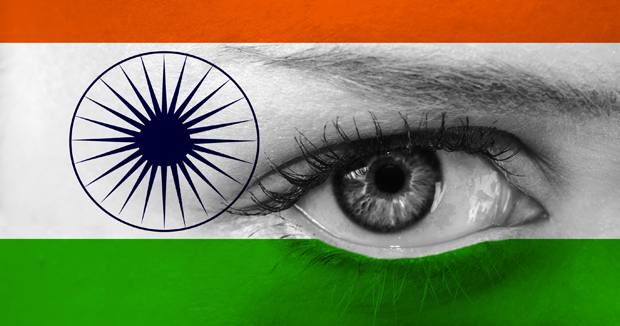Hindu supremacists stall play in India
The Hindu Janajagruti Samiti’s (HJS) unmistakable glee knew no bounds. It had scored a hat trick of getting Ali J, a play centred around the partition of India and communal riots, and seeking to demolish every argument advanced by Hindu fundamentalists, off the stage.
First it was Mumbai, when on 6 February the organisers of the prestigious Kala Ghoda Festival, fearing violence from HJS and political party Shiv Sena, were cowed into calling it off. On March 9, the Chennai Police, citing “law and order problems” asked the troupe to cancel the show. And on 12 March, an hour before the play was about to start, Bangalore cops barged into the theatre and told the performers to clear off from the premises.
The memorandum submitted by the HJS, a revanchist organisation dedicated to “rekindling righteousness” and reawakening (Janajagruti means “mass awakening” in Sanskrit) Indians’ pride in their ancient culture, reads like a study in jingoism laced with vicious communalism. Evam, the Chennai-based theatre group producing the play, is accused of hurting religious sentiments and assaulting nationalistic pride because, among other things it shows an inter-faith love affair, depicts the persecution of Muslims, advocates jihad, depicts Jinnah as being a taller personality than Gandhi, and overall militates “against the established moral principles of Indian society”. These bellicose claims must be greeted with incredulity because as Karthik Kumar, the director and lead actor asserts in an interview to a national daily, none of these purveyors of “Indian morality” had even watched the play. Moreover, as Kumar categorically says, the crux of Ali J’s message was to recall the horrors of partition and caution against the purveyors of hate who indulge in polarising people on the grounds of religion.
This spate of censorious incidents leads one to a number of questions. What is the provenance of organisations like the HJS and the Shiv Sena? What motivates them to claim a sole monopoly on the interpretation of history? And, does the state bear no responsibility in thwarting their efforts?
The systematic rewriting of history and imposing myths upon established facts is a critical component of the Hindu nationalist ideology, for, the doctrine of Hindutva mandates not an India of cultural and ethnic syncretism, but a “Hindustan” in which rabid Islamophobia runs riot. It isn’t the first time that the depiction of partition — the goriest and most viciously communal episode in South Asian history — has been attacked by Hindu supremacists.
In April 1974, M.S. Sathyu’s film Garam Hawa (Hot Wind) — the heartrending tale of the “scorching, simmering and debilitating winds of communalism, political bigotry and intolerance” incurred the Shiv Sena’s wrath. Salim Mirza, the protagonist, was a study in resilience and religious tolerance. Even when everything around him is charred in the communal inferno, he refused to leave India. Bal Thackeray, the Shiv Sena supremo, was so enraged at this humanistic portrayal of a Muslim that he threatened to raze to ashes every single theatre and screen which showed the film. The premiere at Bombay’s Regal Cinema was stalled because the police played mute bystanders. Only after a special screening was hastily arranged for Thackeray and he was satisfied that a Muslim had to stay back and join the Indian (read “Hindu”) mainstream was the film allowed to go on.
Tamas, a television serial carrying pretty much the same message as Garam Hawa, encountered similar opposition in 1988. It didn’t help that the government of Maharashtra, citing possible law and order problems, effectively played tango with the champions of censorship. It could go on air only after the Supreme Court rejected the government’s apprehensions as unfounded.
It would indeed be short-sighted to reserve trenchant criticism only for the bullies who squelch freedom of expression, for more often than not, the government is equally complicit. This is because India’s constitution is unequivocal — that restrictions on speech can be imposed only if “public order” and not the “law and order situation” is in jeopardy. Last year, the Tamil Nadu government took this specious and patently illegal plea while stalling Vishwaroopam, a film which some Muslim organisations found offensive. The courts have clearly stated that “law and order” was narrower in scope than “public order”, and these two should not be interpreted interchangeably, and it is incumbent upon the state to protect the fundamental right to speech in the face of onslaughts.
As long as the government pussyfoots or plays a charade for purposes of political expediency, the HJS and others of its ilk will be thirsting for more glory.
This article was published on April 16, 2014 at indexoncensorship.org

